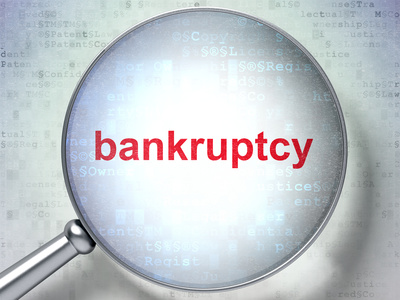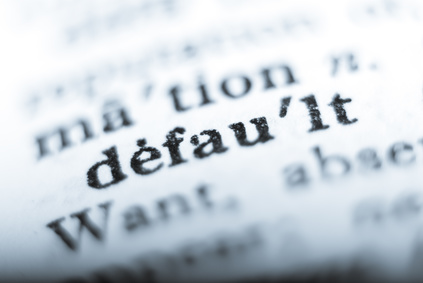The U.S. Court of Appeals for the Eleventh Circuit recently rejected a putative class action against a mortgagee based on the alleged late recording of satisfactions of mortgage in supposed violation of New York law.
Posts tagged as “Eleventh Circuit”
The U.S. Court of Appeals for the Eleventh Circuit recently held that, under the federal Real Estate Settlement Procedures Act, a mortgage loan servicer had no duty to evaluate a borrowers’ loss mitigation application submitted two days before the foreclosure sale, even though the sale was continued, affirming the district court’s grant of summary judgment in the servicer’s favor. The Court also held that the borrowers had to present evidence that they suffered actual damages or were entitled to statutory damages in support of their claim based on the servicer’s supposedly inadequate response to their “notice of error” under RESPA…
The U.S. Court of Appeals for the Eleventh Circuit recently held that the word “surrender” in the Bankruptcy Code, 11 U.S.C. § 521(a)(2), requires that debtors relinquish all of their rights to the collateral. In so ruling, the Court ordered the borrowers to “surrender” their house to the mortgagee in a foreclosure action, and held that the bankruptcy court had the authority to compel the borrowers to fulfill their mandatory duty under 11 U.S.C. § 521(a)(2) not to oppose a foreclosure action in state court. A copy of the opinion in David Failla, et al v. Citibank, N.A. is available at: …
The U.S. Court of Appeals for the Eleventh Circuit recently held that the federal Fair Debt Collection Practices Act’s venue provision did not apply to post-judgment action garnishment proceedings. A copy of the opinion in Ray v. McCullough Payne & Haan, LLC is available at: Link to Opinion. A debt collector filed a collection action. In compliance with the FDCPA’s venue provision, the debt collector brought that action in Fulton County, Georgia, where the debtor resided. After obtaining a judgment against the debtor in that action, the debt collector initiated a garnishment proceeding against the debtor’s bank to collect on the…
In an unpublished opinion, the U.S. Court of Appeals for the Eleventh Circuit recently held that a consumer alleging that she did not receive disclosures required by the federal Fair Debt Collections Practices Act (FDCPA) sufficiently alleged that she suffered a concrete injury, and thus satisfied the standing doctrine’s injury-in-fact requirement under Article III of the U.S. Constitution. In so ruling, the Court confirmed that the FDCPA only applies to debts that are in default when the debt collector obtained them, rejecting the consumer’s argument that “a debt can be in default before the debtor is ever asked to pay…
The U.S. Court of Appeals for the Eleventh Circuit recently upheld the district court’s dismissal of a borrower’s amended complaint against a loan servicer alleging claims under the Fair Debt Collection Practices Act (FDCPA) and the Florida Consumer Collection Practices Act (FCCPA) for leaving a letter in the borrower’s mailbox, posting a letter to his front door, and sending a letter via registered mail offering the borrower various sums of financial assistance if he vacated the property. The Court held that the servicer’s actions did not constitute a demand for payment under the FDCPA and FCCPA and upheld the district…
The U.S. Court of Appeals for the Eleventh Circuit recently upheld the dismissal of federal Truth in Lending Act (TILA) allegations that sought to hold the assignee of a mortgage loan liable for the mortgage loan servicer’s supposed failure to comply with the borrower’s written request for a payoff statement. In so ruling, the Court held that TILA creates a cause of action against an assignee where violation is “apparent on the face of the disclosure statement provided in connection with [a mortgage loan] transaction pursuant to this subchapter,” and that an alleged failure to provide a payoff statement is…
The U.S. Court of Appeals for the Eleventh Circuit recently struck down Florida’s “anti-surcharge” statute, Fla. Stat. § 501.0117, holding that the Florida law prohibiting charging a fee to pay by credit card was an unconstitutional restriction of free speech. A copy of the opinion in Dana’s Railroad Supply, et al v. Attorney General, State of Florida is available at: Link to Opinion. Four small businesses filed suit after receiving cease-and-desist letters from the Florida Attorney General demanding they refrain from charging lower prices for customers using cash and higher prices for those using credit cards, and demanding that they refrain from…
The U.S. Court of Appeals for the Eleventh Circuit recently held that a party challenging an arbitration agreement containing a delegation clause – requiring threshold determinations, such as whether an arbitration agreement is enforceable, to be made by an arbitrator – must challenge the delegation clause specifically, and not simply the agreement as a whole. A copy of the opinion is available at: Link to Opinion. The plaintiff, a Georgia resident, responded to a television advertisement for short-term loans by applying for the $1,000 loan using his computer. The lender was a South Dakota limited liability company located on Indian…
The U.S. Court of Appeals for the Eleventh Circuit recently confirmed that an entity is not a “debt collector” under the federal Fair Debt Collection Practices Act, where it does not regularly collect on debts owed to a third party, and debt collection is not the principal purpose of the entity’s business, even when the debt was in default at the time the entity acquired it. A copy of the opinion is available at: Link to Opinion. A lender sued a borrower to collect credit card debt. The parties entered into a settlement agreement, but the borrower failed to pay…
The U.S. Court of Appeals for the Eleventh Circuit recently affirmed the dismissal of a borrower’s allegations under the federal Fair Debt Collection Practices Act and the Florida Consumer Collection Practices Act as to one letter, the purpose of which was to request additional information, but reversed as to two other letters, holding that they were sent in connection with the collection of a debt. A copy of the opinion is available at: Link to Opinion. The plaintiff’s mortgage loan went into default and the law firm representing the lender sent the borrower three letters. Two weeks later, the borrower…
Addressing what it termed “a deluge [that] has swept through U.S. bankruptcy courts of late” the 11th Circuit Court of Appeals in Crawford v. LVNV Funding, LLC held that filing a proof of claim on time barred debt is conduct that violates the Fair Debt Collection Practices Act (“FDCPA”). Background The last payment on the underlying debt was made in 2001 and subject to Alabama’s three year statute of limitations. The debtor filed for relief under the Bankruptcy Code in 2008 during which the current owner of the debt filed a proof of claim. Neither the debtor nor the Chapter…












